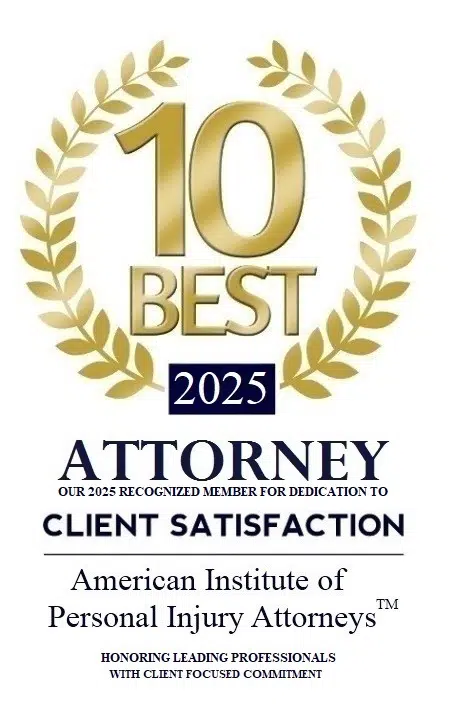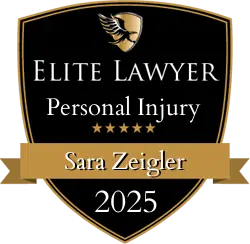For many people in West Virginia, riding a motorcycle is a thrilling experience. Some ride simply for the excitement, while others rely on their bikes as their main mode of transportation when weather permits. Regardless of how often you ride, it is important to know the state laws regarding motorcycles. Below, our West Virginia motorcycle accident lawyer explains what these are and how to ensure your rights are protected after a crash.
What is the West Virginia Motorcycle Helmet Law?
In West Virginia, all motorcyclists and their passengers are required to wear motorcycle helmets that meet the Department of Transportation’s (DOT) specifications. Helmets must always be properly worn, meaning they must be secured by a chinstrap or head strap.
Helmets must also display a sticker indicating that they meet DOT standards. Others may have stickers showing that they meet the standards of Snell or ANSI, which are similar to those of the DOT.
In addition to the above requirements, the National Highway Traffic Safety Administration also recommends the following:
- Motorcycle helmets should have a thick foam layer inside.
- Chinstraps and head straps should be secured with rivets and not plastic buckles.
- Helmets should feel substantial and weigh approximately three pounds.
- Helmets should not have decorations, spikes, or anything else that extends more than two-tenths of an inch from the surface.
Other Motorcycle Laws in West Virginia
The West Virginia helmet law is not the only one that pertains to motorcyclists. There are other important laws, as well. These include:
- Riders and passengers must have a compliant face shield affixed to their helmets or wear protective eye goggles.
- Windscreens or windshields must also be constructed with shatter-resistant material that complies with DOT standards.
- Grips or handlebars cannot be higher than 15 inches above the uppermost portion of the rider’s seat.
- To carry another person, the motorcycle must have a second seat that firmly attaches to the bike behind the rider’s seat and must have separate footrests.
- Passengers are prohibited from riding side-saddle on a seat.
- Sidecars fitted with one passenger seat are allowed, but the passenger must wear a safety belt.
- All motorcycles must be equipped with a rearview mirror attached to the handlebars so riders can see a minimum of 200 feet behind them.
- Motorcyclists must use their headlights at all times, even during daytime hours.
Consequences of Violating WV Motorcycle Helmet Law
The West Virginia motorcycle helmet law is very strict, as it is meant to protect riders and their passengers. Violating these laws has both physical and legal consequences.
Motorcycle helmets reduce the chance of fatality during an accident by 37 percent, according to the Centers for Disease Control and Prevention (CDC). In addition, motorcycle helmets also reduce the risk of head injury by nearly 70 percent. Traumatic brain injuries (TBIs) are some of the most common injuries suffered by motorcyclists during an accident. Wearing a helmet can greatly reduce the chance of suffering a TBI.
For brain injury victims, concussions and other TBIs can result in several short-term and lifelong complications. Specifically, a brain injury can impact an accident victim’s sensation, thinking, emotion, and language, according to the CDC.
As serious as the physical consequences of violating West Virginia’s helmet law are, the legal consequences are also serious. Bikers and passengers who fail to wear a helmet can face a suspension of their motorcycle license, traffic citations, high fines, and, when there are repeat offenses, a revocation of their motorcycle license.
Lastly, if someone else’s negligence caused your crash, failing to wear a motorcycle helmet can also result in your damages being reduced.
Under West Virginia’s comparative fault law, an accident victim’s damages can be reduced if they contributed to their injuries. Because the law requires the use of helmets, and the fact that helmets can greatly reduce the severity of injury, the insurance company will argue that the accident victim did not try to mitigate their injuries, reducing the total amount of damages they receive.
Should You Repair Your Motorcycle Helmet After a Crash?
After a motorcycle accident, it is natural to want to repair the damage from the crash as soon as possible. There is a good chance that your motorcycle helmet was significantly damaged during a crash, and so, you may think about repairing it. It is advised that you do not.
Firstly, motorcycle helmets are engineered to absorb impact. During an accident, the inner layer of foam compresses and dissipates that energy. This damage cannot be undone, and so if the helmet is used again, the biker may not have the protection they need. It is also important to note that even if the foam does not look cracked or compressed, it does not mean it did not sustain any damage. After any accident, bikers should purchase a new helmet that complies with DOT standards.
Another reason not to repair your motorcycle helmet after an accident is that it can serve as valuable evidence if you file a personal injury claim. A damaged motorcycle helmet can prove how a motorcyclist was injured, such as if it shows the motorcyclist was thrown from their bike. This can help prove that another motorist was at fault. A damaged motorcycle helmet can also help prove that a biker suffered a head or traumatic brain injury during a crash, which can allow them to claim full damages.
Call Our Motorcycle Accident Lawyer in West Virginia Today
There are many laws regarding motorcycles in West Virginia, and if you are injured in an accident, it is important to know what they entail.
At Kaufman & McPherson, PLLC, our West Virginia motorcycle accident lawyers can explain what they are and help you navigate the process of filing a claim. Our experienced attorneys can determine what caused your accident, accurately value your claim, and provide the legal advice you need to help you obtain the maximum settlement you are entitled to. Call us now at 304-842-4300 or fill out our online form to schedule a free evaluation of your case and to get the legal help you need.








